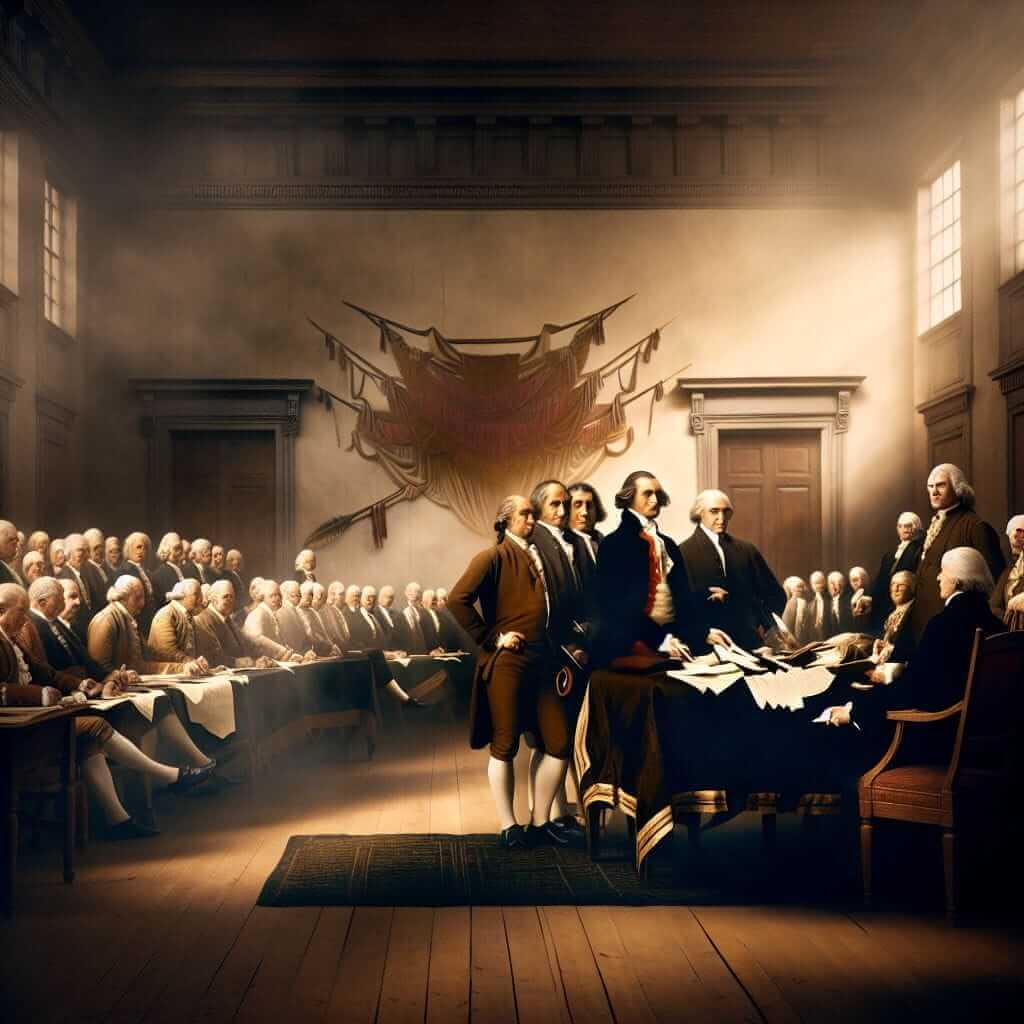The IELTS Reading section is a frequent source of anxiety for test-takers. One common theme that appears in IELTS Reading passages is “Historical events that shaped modern nations”. This topic is rich in content and provides an excellent platform to test a variety of reading skills. In past tests, topics like the French Revolution, the Industrial Revolution, and World War II have been featured prominently. Given the recurrent nature of these themes, it’s likely they could appear in future tests as well.
Nội dung bài viết
- Reading Passage: The Signing of the Declaration of Independence
- Passage Text
- Questions
- Identifying Information (True/False/Not Given)
- Multiple Choice
- Matching Headings
- Sentence Completion
- Answer Keys
- Identifying Information (True/False/Not Given)
- Multiple Choice
- Matching Headings
- Sentence Completion
- Lesson Learned
- Vocabulary
- Grammar Focus
- Tips for High Scores in the IELTS Reading Section
Reading Passage: The Signing of the Declaration of Independence
Passage Text
The Declaration of Independence is a historic document that announced the thirteen American colonies’ separation from British rule. It was officially adopted by the Continental Congress on July 4, 1776. The drafting of the Declaration was a collaborative effort, but Thomas Jefferson is credited as its main author.
The backdrop to the Declaration was years of escalating tension between the colonies and the British authorities. The colonies were largely self-governed but were subjected to British taxes and laws without representation in the British Parliament. This led to increasing resentment and a desire for independence.
The Declaration is divided into three parts: an introduction, a list of grievances against King George III, and a conclusion proclaiming the colonies’ independence. The introduction lays out the Enlightenment ideals of individual liberty and government by consent of the governed. The list of grievances details the colonies’ complaints against British rule, including unfair taxation, military aggression, and the denial of fair trials. The conclusion asserts the colonies’ right to be free and independent states.
The adoption of the Declaration was a bold and risky step. The signers knew they were committing an act of treason against the British Crown, punishable by death. Nevertheless, 56 delegates signed the document. This historic act marked the beginning of a war for independence that would last until 1783.
The ideas contained in the Declaration have had a profound impact on the development of modern democratic nations. The document’s emphasis on individual rights and self-governance influenced numerous revolutions and movements around the world. Today, the Declaration of Independence remains a symbol of freedom and democracy.
Questions
Identifying Information (True/False/Not Given)
- Thomas Jefferson was the sole author of the Declaration of Independence.
- The Declaration was adopted unanimously by the Continental Congress.
- The Declaration’s grievances included the establishment of unfair taxation by the British.
- The adoption of the Declaration was viewed as an act of loyalty by the British Crown.
- The ideas in the Declaration influenced revolutions globally.
Multiple Choice
-
What was the main reason the American colonies wanted independence?
- A. To establish a new monarchy
- B. To escape British taxes and laws without representation
- C. To join forces with the French Empire
- D. To abolish all forms of government
-
How many delegates signed the Declaration of Independence?
- A. 45
- B. 50
- C. 56
- D. 60
Matching Headings
Match the following headings with the corresponding paragraphs:
- i) The Influence of the Declaration
- ii) The Introduction of the Declaration
- iii) The Risk of Independence
- iv) The Grievances Listed
- v) The Role of Thomas Jefferson
Sentence Completion
-
The Declaration of Independence was formally adopted on __.
-
The list of grievances in the Declaration addressed issues like __ and military aggression.
Answer Keys
Identifying Information (True/False/Not Given)
- False (Thomas Jefferson was the main author, not the sole author)
- Not Given
- True
- False (It was viewed as an act of treason)
- True
Multiple Choice
- B. To escape British taxes and laws without representation
- C. 56
Matching Headings
- v) The Role of Thomas Jefferson
- ii) The Introduction of the Declaration
- iv) The Grievances Listed
- iii) The Risk of Independence
- i) The Influence of the Declaration
Sentence Completion
- July 4, 1776
- unfair taxation
Lesson Learned
Common errors often include misunderstanding the question types, confusing details, and not using skimming and scanning techniques effectively. Dwelling too much on one particular question can also hinder progress.
Vocabulary
-
Declaration (n)
- /ˌdek.ləˈreɪ.ʃən/
- A formal statement or announcement.
- Example: The Declaration of Independence was a crucial moment in American history.
-
Grievance (n)
- /ˈɡriː.vəns/
- A complaint or resentment.
- Example: The Declaration lists several grievances against the British Crown.
-
Consent (n)
- /kənˈsent/
- Permission for something to happen or agreement to do something.
- Example: Government by the consent of the governed is a fundamental principle.
Grammar Focus
Relative Clauses: A relative clause is a phrase that adds extra content to the main clause and begins with a relative pronoun like ‘who,’ ‘which,’ or ‘that.’
- Example: “The list of grievances, which included unfair taxation, detailed the colonies’ complaints against British rule.”
Relative clauses are crucial for adding details and improving coherence in writing.
Tips for High Scores in the IELTS Reading Section
- Practice Skimming and Scanning: Focus on getting the gist of a passage for quick answers.
- Understand Question Types: Be familiar with different question formats.
- Time Management: Allocate your time wisely and don’t linger too long on any one question.
- Develop Vocabulary: A wider vocabulary helps in understanding complex texts quickly.
For more in-depth reading practice and resources, consider reviewing our Preservation of Cultural Heritage Sites and Historical Significance of Global Exploration articles.

By preparing thoroughly and understanding the intricacies of the IELTS Reading section, you can achieve a high score. Happy studying!